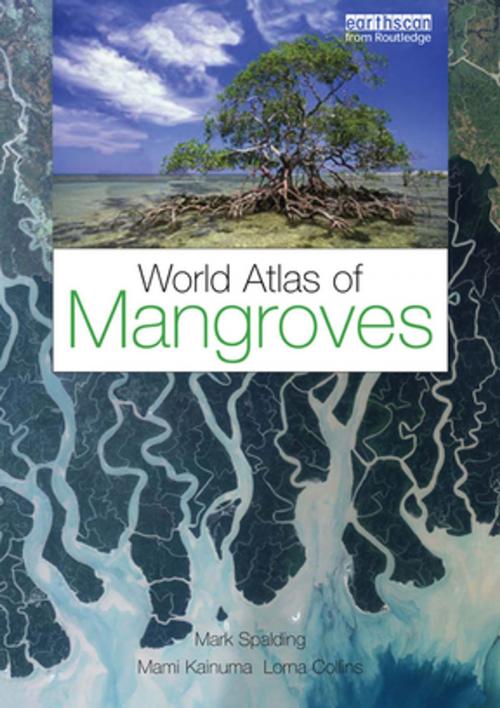| Author: | Mark Spalding | ISBN: | 9781136530951 |
| Publisher: | Taylor and Francis | Publication: | September 23, 2010 |
| Imprint: | Routledge | Language: | English |
| Author: | Mark Spalding |
| ISBN: | 9781136530951 |
| Publisher: | Taylor and Francis |
| Publication: | September 23, 2010 |
| Imprint: | Routledge |
| Language: | English |
Published with ISME, ITTO and project partners FAO, UNESCO-MAB, UNEP-WCMC and UNU-INWEH This atlas provides the first truly global assessment of the state of the world's mangroves. Written by a leading expert on mangroves with support from the top international researchers and conservation organizations, this full colour atlas contains 60 full-page maps, hundreds of photographs and illustrations and a comprehensive country-by-country assessment of mangroves. Mangroves are considered both ecologically and from a human perspective. Initial chapters provide a global view, with information on distribution, biogeography, productivity and wider ecology, as well as on human uses, economic values, threats, and approaches for mangrove management. These themes are revisited throughout the regional chapters, where the maps provide a spatial context or starting point for further exploration. The book also presents a wealth of statistics on biodiversity, habitat area, loss and economic value which provide a unique record of mangroves against which future threats and changes can be evaluated. Case-studies, written by regional experts provide insights into regional mangrove issues, including primary and potential productivity, biodiversity, and information on present and traditional uses and values and sustainable management.
Published with ISME, ITTO and project partners FAO, UNESCO-MAB, UNEP-WCMC and UNU-INWEH This atlas provides the first truly global assessment of the state of the world's mangroves. Written by a leading expert on mangroves with support from the top international researchers and conservation organizations, this full colour atlas contains 60 full-page maps, hundreds of photographs and illustrations and a comprehensive country-by-country assessment of mangroves. Mangroves are considered both ecologically and from a human perspective. Initial chapters provide a global view, with information on distribution, biogeography, productivity and wider ecology, as well as on human uses, economic values, threats, and approaches for mangrove management. These themes are revisited throughout the regional chapters, where the maps provide a spatial context or starting point for further exploration. The book also presents a wealth of statistics on biodiversity, habitat area, loss and economic value which provide a unique record of mangroves against which future threats and changes can be evaluated. Case-studies, written by regional experts provide insights into regional mangrove issues, including primary and potential productivity, biodiversity, and information on present and traditional uses and values and sustainable management.















